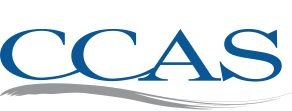About
Objectives and Eligibility
The Council of Colleges of Arts and Sciences (CCAS), founded in 1965, is the national association of colleges of arts and sciences. Its purpose is to provide professional-development programming to its member deans and to sustain the arts and sciences as a leading influence in American higher education. CCAS serves as a forum for the exchange of ideas and information among deans of arts and sciences representing the member colleges and as a representative of the liberal arts and sciences at a national policy-making level. The Council further seeks to support programs, activities, and resources to improve the intellectual stature and public understanding of the disciplines of the arts and sciences.
Arts and sciences colleges represent more than half of the undergraduate instruction offered at their institutions, and many member colleges are responsible for a wide spectrum of master's and doctoral degree programs. CCAS members, therefore, represent the largest component of American higher education in publicly and privately supported universities and colleges. The Council is concerned with the problems, possibilities, and interests of these institutions.
Eligibility for membership extends to baccalaureate degree-granting arts and sciences units in accredited universities and colleges, both public and private. The dean of an arts and sciences unit is the voting representative in CCAS. Currently, the membership includes 800 deans of colleges of arts and sciences (and an additional 1,200 associate and assistant deans) at over 500 institutions in the United States, Canada, Kazakhstan, Kuwait, Morocco, and Qatar.
The governing body is a Board of Directors, which consists of the officers and twelve directors, who serve staggered three-year terms. Officers and term representatives are elected by the membership at the Annual Business Meeting each November.




